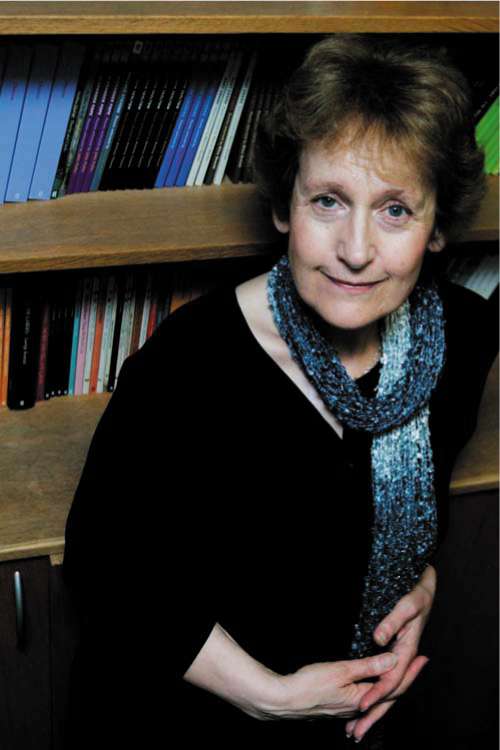Female contenders rule out 'archaic' post of Poet Laureate

Your support helps us to tell the story
From reproductive rights to climate change to Big Tech, The Independent is on the ground when the story is developing. Whether it's investigating the financials of Elon Musk's pro-Trump PAC or producing our latest documentary, 'The A Word', which shines a light on the American women fighting for reproductive rights, we know how important it is to parse out the facts from the messaging.
At such a critical moment in US history, we need reporters on the ground. Your donation allows us to keep sending journalists to speak to both sides of the story.
The Independent is trusted by Americans across the entire political spectrum. And unlike many other quality news outlets, we choose not to lock Americans out of our reporting and analysis with paywalls. We believe quality journalism should be available to everyone, paid for by those who can afford it.
Your support makes all the difference.Three of the leading contenders to be Britain's first female Poet Laureate have ruled themselves out of contention for the post.
The ancient role, currently held by Andrew Motion and remunerated by 630 bottles of Spanish sherry, is due to be reappointed next year.
But hopes that the 10-year tenure, whose previous incumbents have included Ted Hughes and John Betjeman, could go to a woman look set to be dashed.
Almost none of the leading female poets are interested in the position. Wendy Cope, who had previously been a favourite for the role, has poured scorn on it, saying that she "never wanted" to be laureate. "Personally I feel it is an archaic post and means nothing. It's simply not important," she said.
"It comes from the media this idea of writing royal poems," added Cope, who has attracted an ardent female fan base for her down-to-earth outpourings on relationships and men. "Andrew Motion had been doing a very good job writing royal poems without making a fool of himself, but he should not be in that position," she said.
And Cope is not alone in her distaste for the high-profile post, which will become available when Motion's 10 years in the seat come to a close next year.
Award-winning poets Fleur Adcock and Ruth Padel, who have both been tipped for the role, agree that writing for the Queen was probably more trouble than it was worth. Adcock said that quite apart from the extra work it involves, the role continues to command a very meagre salary.
"It's terribly hard work for very little pay," she said. "The poet laureate is fine as an institution, as long as I don't have to do it."
The fee for taking on the grand title is still just £5,000 a year, although the ancient tradition of a "butt of sack per annum" has been reinstated by Motion. But even 630 bottles of Spanish sherry – no matter how fine – is not enough of an incentive to abandon literary integrity and solitude, said Adcock, whose work has earned her an OBE and the Queen's Medal for Poetry.
"There's no way I'd do it, I like a quiet life; I like to be in the garden or visiting my children," she said. "When I started poetry it was something you did in private, not in public."
Ruth Padel, the chair of the UK Poetry Society, said she thought most talented writers would give the post a wide berth.
"I think every good poet would have the same answer: that you'd be wary about your work," she said. "My impulse would be to turn it down," adding that wider factors might affect her decision. "There are other things to consider, such as what it would mean for a woman to do it, and what it could do for poetry in the community to make it more loved, but you'd be worried you wouldn't be able to write what you wanted to."
Another frontrunner, Lavinia Greenlaw, would not comment on whether she would take the post. "I don't know, I haven't been offered it," she said. But Greenlaw added that she was saddened by Cope's rejection of the role. "I think it's a real shame that Wendy doesn't want it, as I think she'd be really good at it," she said.
Ledbury Poetry Festival's director, Chloe Garner, who delivered her impassioned appeal to the Queen last month to break with tradition and appoint a female laureate, rejected Cope's assertions that the job was outdated. "I don't agree with that," she said. "I think it's really good that the job exists as it's the one high-profile job as a poet."
Garner continues to be optimistic that the role can be filled by a woman next year. "If it went to a new upcoming poet, that would be just as good; it doesn't have to be a big name," she said.
The position was last vacant when Ted Hughes died in 1999, at which point Tony Blair took the opportunity to change the role from a life appointment to a decade-long posting.
Join our commenting forum
Join thought-provoking conversations, follow other Independent readers and see their replies
Comments